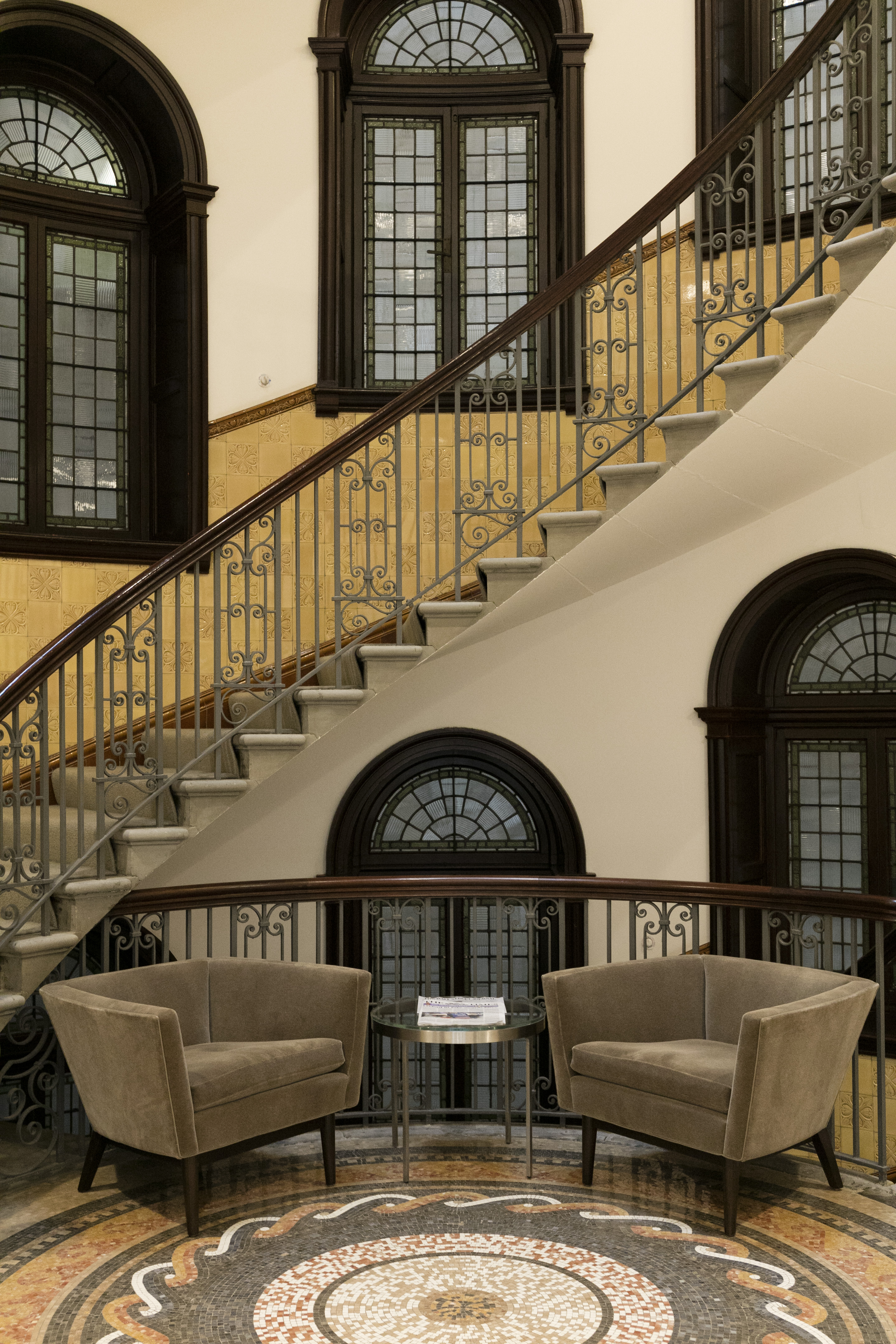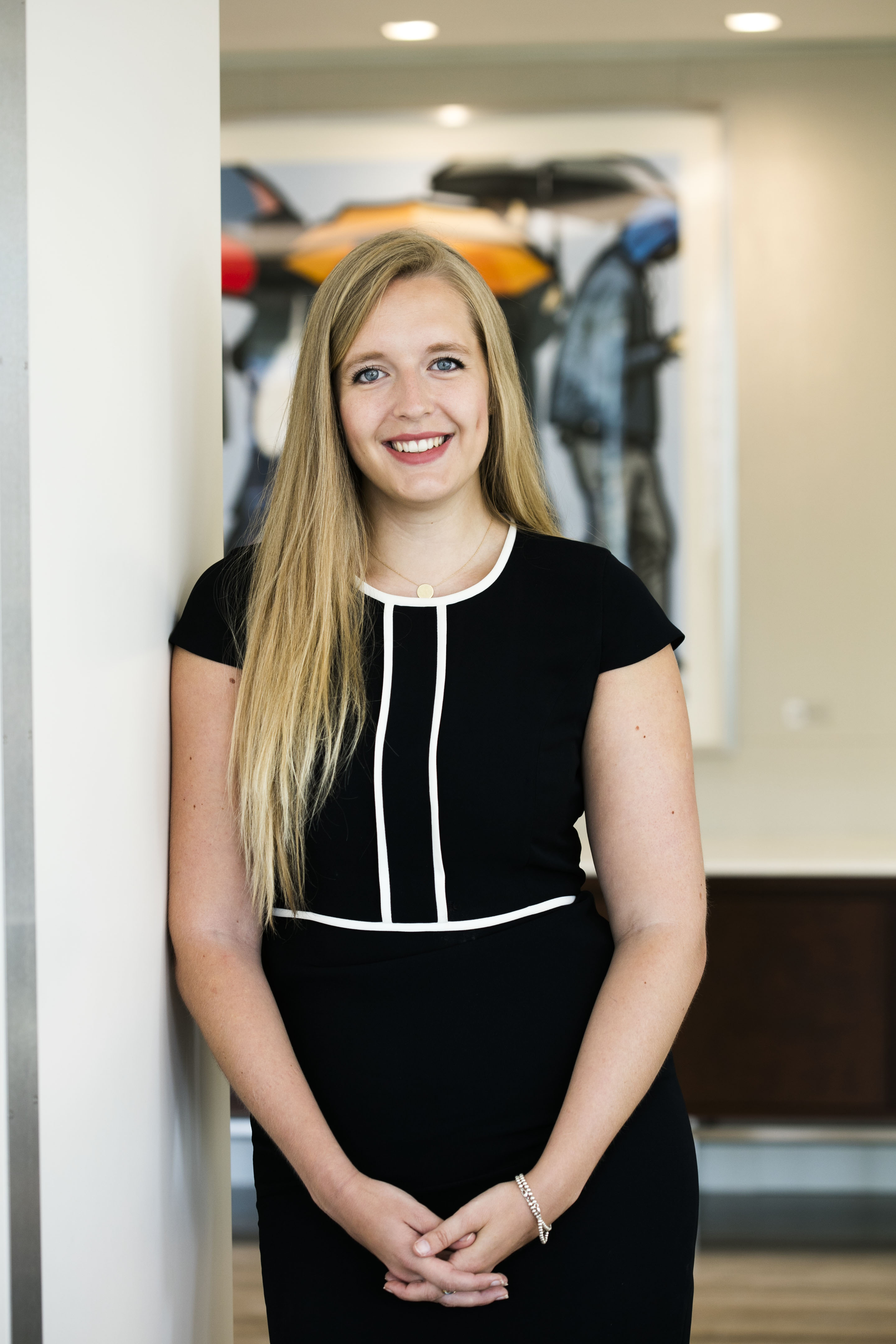The vacation scheme gave me a real insight into the work areas and environment of the firm, and I felt as if I was undertaking the same sort of work that I would be doing as a trainee.
It is hard to imagine a more intriguing sentence to describe the foundation of a law firm, reproduced verbatim here: “In May 1872, a tall, 34-year-old, red-bearded lawyer stepped down from the stagecoach at the Plaza of Los Angeles.” If you’re not intrigued by that, then perhaps the dynamic and entrepreneurial Gibson Dunn is not the firm for you – a point that Mark Speretto, partner and training principal, makes about the nature of the firm’s culture: “We are looking for bright high performers, who are confident, entrepreneurial and, importantly, who will fit into this environment. So you need to be driven, a good team player, a fast learner and someone who can think on their feet. Some people prefer to be spoon fed, but that won’t happen here – we want those who are keen on a career at a U.S. established firm and know why they are choosing that experience over anything else.”
Gibson Dunn, winner of this year’s award for ‘Best work placement scheme – City firm’, has 20 offices and over 1,300 lawyers globally, with its London office existing for more than 35 years. Clementine Hollyer, second-seat trainee, was attracted to the firm’s scheme for a variety of reasons, as she explains: “I was keen to learn more about US firms; having done some work experience at a magic circle firm when I was at school, I wanted to see the other side of the coin. I knew that I was interested in exploring litigation, and Gibson Dunn’s name kept popping up in relation to some interesting, high-profile cases. Their pro bono work, such as on the Proposition 8 case in California, was also indicative of the firm’s values.”

The firm’s three-week vacation scheme, which has been running for six years and from which the firm recruits approximately 90% of its trainees, is characterised by a huge amount of effort from throughout the firm. “It is our principal trainee recruitment tool and although not the only way to get a training contract, we prefer to choose from the scheme,” explains Mark. “And it’s of benefit to both sides; we get to see someone interacting in our office environment and they have the opportunity to take part in interesting work and see what City lawyers do day to day.”
Some people prefer to be spoon fed, but that won’t happen here – we want those who are keen on a career at a U.S. established firm and know why they are choosing that experience over anything else
The scheme is designed to showcase the firm, but also to leave all participants with the sense they’ve had a valuable experience – regardless of whether they go on to secure a training contract. Katy Edwards, the firm’s graduate recruitment and professional development manager, describes the way in which this is achieved: “When we designed the programme, we thought carefully about our own vacation scheme experiences and about how best to balance getting to know the students, whilst ensuring that they would learn something while here. During the three weeks students split their time between a transactional seat and a disputes seat and we encourage their supervisors to involve them in live matters to reflect as closely as possible what life as a trainee is really like. We set a busy timetable and we hope that this helps hone their skills juggling competing deadlines. Even the negotiation exercise, which is often regarded by students as their favourite task, helps develop useful practical skills.”
There is plenty of opportunity for detailed feedback on the assessed written tasks, one of which has a corporate slant while the other is disputes focused. “The exercises are marked by fee earners, who feed back to the students how they’ve done,” describes Katy. “We think it’s important for participants to understand what worked well and how they might improve; we don’t want them to feel that their hard work has been lost into a vacuum.”
Mark expands: “Along with the detailed feedback, we give them tips and techniques, such as presentation and advocacy skills, and practical advice about how firms work internally and what to look out for in terms of difference. We have a long discussion about culture and what it means – not just in terms of day-to-day work, but how the firm is structured and the people it employs. Even if they don’t receive an offer, they will leave hopefully having learnt something valuable.”
Our existing trainees are deeply involved with recruitment, as they remember the process – and are helping to assess those who might potentially be their trainees in two years’ time!
A huge investment of time and energy from the entire firm ensures that the scheme is a success and is a reflection of the emphasis put on home-grown talent. “Our existing trainees are deeply involved with recruitment, as they remember the process – and are helping to assess those who might potentially be their trainees in two years’ time!” reflects Mark. “We want that continuity and internal growth because it means that on day one, your associates are ready to go and are working in an area that they have chosen.” Even more so if those trainees have done the scheme: “Most firms say similar things in their brochures and websites, especially about work and culture, so there’s really no substitute for seeing it in person. Someone who has accepted a training contract having done the scheme is in a much stronger position; there are no surprises on day one!”
Clementine recalls some of the specific features of the scheme: “There was an excellent mix of assessed tasks and real-life work with a supervisor. I was pleased to find that the work was light on proofreading and admin tasks; as a non-law student, having the chance to do some interesting legal research was great as a way of starting to learn about the law. I was also taken to a signing, which I had helped prepare the documentation for.”

In addition to work and assessments, the scheme features a dazzling array of social functions, such as a legal treasure hunt, bowling, a night at Flight Club, and drinks on the firm’s roof garden. Clementine comments: “There was a lot of socialising and networking; it was a full-on three weeks in that respect! We played ping pong, had a curry night, enjoyed champagne and canapes on the London Eye with some of the partners, and were encouraged to play in the firm’s softball team.”
The scheme features ‘coffee conversations’, which are informal chats between students and partners about what it’s like to work in individual departments, the type of work and cases they’re involved with, and life as a trainee. Katy comments: “There are a huge number of partners and senior associates involved in the programme, and students commonly mention how impressed they are with how many partners they get to speak to.” Clementine adds: “The coffee conversations were great, as we were able to ask questions and chat informally. And my supervisors both did a brilliant job of introducing me to everyone on the floor, so I felt that I was able to meet almost everyone at the firm while I was there.”
Having Lord Falconer as one of the firm’s partners is a unique bonus for the vacation schemers, as Katy describes: “He is happy to chat to all the students about his experiences as lord chancellor and as a senior commercial silk, and is keen to find out about their legal aspirations. Having access to someone of that calibre is an amazing opportunity.”
There was an excellent mix of assessed tasks and real-life work with a supervisor. I was pleased to find that the work was light on proofreading and admin tasks; as a non-law student, having the chance to do some interesting legal research was great as a way of starting to learn about the law.
In fact, opportunities abound on the scheme – but it is incumbent on participants to make the most of them, as Katy points out: “Be yourself, but remember that it is your one opportunity to impress; it is a competitive process, and everyone is academically able, so you need to go all out to make sure that your name rises to the top of the list when decisions are being made. Produce your best work every time, adopt a commitment to excellence, and show your enthusiasm for both the scheme and the firm.” Clementine chips in with her advice: “I was aware that I wasn’t coming from a legal background, but I knew that I had many skills to showcase and I focussed on doing my best, communicating well with my supervisor about the progress of my work, being organised and professional.”
An emphasis on personal connections translates all the way through to when the trainees start at the firm and are assigned a mentor, who is a senior lawyer, and a trainee buddy, who is there to support the new joiner throughout the training contract. Katy explains: “The buddy system works really well; the buddies have a budget to take their trainee out for drinks and lunches, or perhaps to see a show or to attend a sporting event together. Trainees also have a more senior mentor to help them settle in and offer more professional support and advice on career progression. And our doors are literally always open – for any questions at all.”
Size plays a big part in the trainee experience, as Mark explains: “We often find that applicants are attracted by the size of the firm and an intake of just six. Fewer trainees means that the work is more varied and comes from lots of different parts of the business. Our trainees aren’t just siloed away in one area.”

Clementine confirms this: “Being a relatively small group of trainees means that we are part of the fabric of the firm and are in demand, as there is a lot of work! We are kept busy and able to be involved at all levels – especially when compared to a firm that takes on hundreds of trainees. The variety is huge and the level of involvement is high.” She continues: “It has exceeded my expectations – I had heard horror stories about the hierarchical structure and intense working hours at American law firms, but my experience at Gibson Dunn couldn’t be more different; I’ve been able to get involved with everything that I’ve wanted to and have had much more client and partner contact than I was expecting.”
Katy sums up Gibson Dunn’s success in terms of both the vacation scheme and trainee recruitment generally, and how it feeds into the culture of the firm as a whole: “We don’t believe in making applicants jump through hoops, instead taking a much more traditional, meritocratic approach to recruitment, which I think sets us apart. We are all extremely proud to be part of the firm and we place a huge value on reaching the right people and getting the right message across. Everyone at the firm – partners, associates and trainees alike – is involved in recruitment and has a seat at the table. I truly think that is one of the secrets of our success.”

Best Work Placement Scheme – City Firm
The vacation scheme gave me a real insight into the work areas and environment of the firm, and I felt as if I was undertaking the same sort of work that I would be doing as a trainee.

